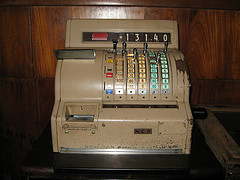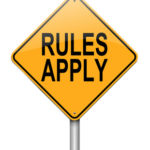 You probably spend hours in service of your client without compensation. At least, that’s how the majority of consumer bankruptcy lawyers operate.
You probably spend hours in service of your client without compensation. At least, that’s how the majority of consumer bankruptcy lawyers operate.
Is this the only way to practice?
It seems as if the consumer debtor bankruptcy bar has been brought up to believe that we should expect no payment from our clients once the case is filed. Whether we price our services on an hourly basis or on a flat fee, we’re trained to suffer the slings and arrows of our clients’ inattentiveness and passivity in the face of creditors with a grin.
Credit report problems, cars repossessed, creditors continuing to collect and a client’s general post-filing laissez faire attitude plague us all.
How long does a lawyer have to keep solving a client’s post-bankruptcy financial problems at no cost?
Hallelujah that they came back!
The critical piece of the puzzle is that we, as lawyers, are required to train our clients to expect to pay for help beyond the work usually associated with a bankruptcy case.
Max Gardner famously said, probably only half facetiously, that he’d do a client’s bankruptcy case for free in exchange for the opportunities to represent that debtor in all the subsequent and related litigation with creditors. You don’t have to go that far to make more than the flat fee on a bankruptcy case.
Here’s my approach to pricing a case:
- My flat fee in 7 covers identified services through the 341 meeting.
- The agreement allows me to charge more if the facts are not as stated at the outset.
- Adversaries, exemption disputes, reaffirmations are not included.
- I can charge more if the client is non-responsive with information from the schedules.
- Everything after the 341 meeting is billable by the hour.
I don’t often invoke the increased price clause. As cases get more complicated, however, it may become more frequent.
The prospect of paying more is a goad to remind the client that they can’t be a passive player in this process. They have to provide paper in a timely matter if they want basic pricing. For a price, we’ll go through their unopened envelopes and boxes – but that will cost money.
Fees After The Meeting Of Creditor
My agreement says that anything I do after the first meeting is billable, including chasing the client for the debtor education certificate or appearing at a continued 341 meeting.
We send a letter to clients after the 341 meeting, reminding them of the terms of our agreement; work from here on out, we remind them, comes at an additional cost.
In the real world, I do a fair amount of hand-holding thereafter without charge. That’s my decision, not my client’s demand. That allows for good client service and, therefore, good public relations for my office. But the ability to charge for significant projects allows me to limit what I give away and to test how important the client’s problem is to them.
By trying to keep the flat fee to the things that are absolutely certain in the case, I can keep the cost down in the case that goes smoothly.
Clients are sometimes frightened by all the off-ramps in my agreement. I explain that I can’t predict the future and the reaction of trustees and creditors; I don’t want to charge for something I may not have to do.
Clients who have trouble with that concept are gladly sent to another lawyer. Remember, you need to choose your clients as carefully as they choose you.
We’re going to talk more about representation agreements, fee applications and that killer question: how to price a case in the face of rabid competition at the Bankruptcy Practice Workshop in Dallas. Two days of marketing, practice management, and technology insights and how-to’s . Come on down.








I’m glad to know this. Is it OK for someone to go to the trustee or judge on their own if a 3rd party collector duns them for discharged debt years later? Or should they just deal with the collector on their own?
If you get a letter from a collector trying to collect discharged debt, find an attorney to sue them!
Someone, debtor or lawyer, needs to tell the collector in writing that the debt is discharged and provide a copy of the discharge. If that doesn’t solve the problem, an attorney should file a motion to enforce the discharge, requesting damages and attorneys fees.